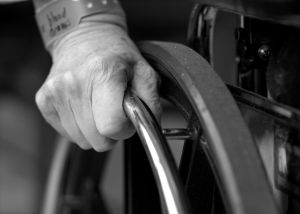Changes in home support services

Changes are coming for home care services to aged people and people with disabilities
Much has been said about the aged care and disability services recently. Last year the Productivity Commission launched its reports on aged care and on disability care and support. In April this year the Federal Government announced its package of reforms for the aged care sector. It has also committed funds for the first stage of the National Disability Insurance Scheme.
Here’s some information about what is expected to occur with the home and community care services, especially those for the elderly.
How it is now
The Home and Community Care (HACC) Program assists frail elderly people, people with disabilities and their family carers who have low level of support needs.
Services provided through HACC funding include domestic assistance, social support, personal and nursing care, home safety and security assessments, centre-based day care, advocacy, information etc. Well-known agencies such as Meals on Wheels, Royal District Nursing Service, Domiciliary Care, local governments (Community Care and Home Assist programs), Country Health SA, Seniors Information Service, Carers SA, Anglicare, Italian Benevolent Foundation, Greek Orthodox Community of SA and the South Australia Police receive HACC funding to provide their services.
For older people with higher levels of support the Commonwealth funds Community Aged Care Packages (CACP) and Extended Aged Care at Home (EACH) packages.
For people with disabilities, apart from the HACC program, there are services defined at each state, which may vary in range and level of support provided.
Transition and future model for community care
Until June 2012 the HACC Program is jointly funded by states and the Commonwealth Government. From 1 July 2012 the services provided to people over 65 years of age (or 50 years for indigenous people) will be entirely funded by the federal government. The services provided to younger people with disabilities will be entirely funded by the State Government, through the Department for Communities and Social Inclusion (DCSI).
Later on a new Home Support Program, announced by the Federal Government, will replace the current model, including four levels of assistance for the elderly who wish and are able to remain at home. It will also incorporate other current programs: National Respite for Carers Programs, Assistance with Care and Housing for the Aged (ACHA) and the Day Therapy Centres. These centres provide physiotherapy, falls prevention programs, podiatry, etc.
It is still not clear whether any substantial changes will occur to the disability services in South Australia.
Support for family carers of a frail elderly person or a younger disabled will continue, but the services will be funded separately based on the age of the person receiving care, as explained above. The same organisations that support carers will continue to do so in the new financial year with no disruption of services expected during or after the transition.
For more information about home support services for aged people and people with disabilities, contact the Seniors Information Service.
Sign up for the newsletter!
Subscribe to our monthly newsletter to receive news, information and events for the community sector in SA.




